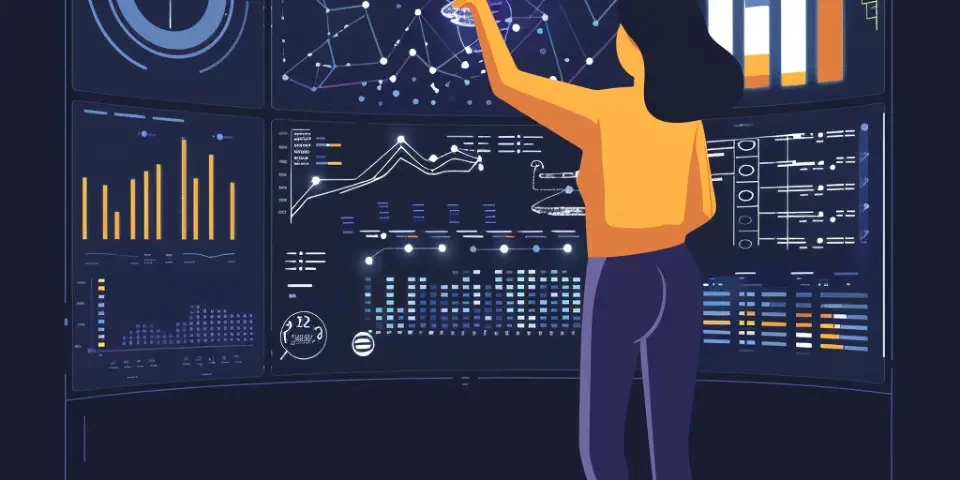Enhancing Mental Health AI Chat GPT as Your 24/7 Online Therapist
Mental health has increasingly become a significant concern in today's fast-paced and demanding world. Thankfully, advancements in artificial intelligence (AI) have paved the way for AI-powered chatbots like GPT (Generative Pre-trained Transformer) to assist individuals in their mental health journey. This article explores the potential benefits and capabilities of AI Chat GPT as a 24/7 online therapist.
1. Accessible Mental Health Support
One of the major advantages of AI Chat GPT is that it provides accessible mental health support anytime, anywhere. Individuals who may face barriers to seeking traditional therapy, such as geographic limitations or affordability, can now access an AI therapist at their convenience. This accessibility promotes early intervention and can complement existing mental health services.

Furthermore, AI Chat GPT can overcome stigma-related barriers. Some individuals may feel uncomfortable or embarrassed discussing their mental health with a human therapist. Engaging with an AI chatbot eliminates fear of judgment and ensures a safe space for open communication.
2. Personalized Conversations and Support
AI Chat GPT has the ability to provide personalized conversations and support tailored to the individual's needs. Through machine learning algorithms, the chatbot learns from each interaction and gains a better understanding of the user's preferences, concerns, and patterns of thinking.
This personalized approach enables the AI Chat GPT to provide tailored coping mechanisms, suggestions, and resources that resonate with the individual. It can offer techniques for stress management, anxiety reduction, and emotional regulation, based on the user's specific challenges and triggers.
3. Continuous Availability
The AI Chat GPT serves as a virtual therapist that is available 24/7. Unlike traditional therapy, where individuals have to wait for scheduled appointments, AI Chat GPT can provide immediate support whenever the individual needs it. This continuous availability is particularly beneficial in times of crisis or urgent situations.
Moreover, the AI chatbot can offer ongoing support and check-ins to monitor the user's mental well-being over time. It can send reminders for self-care practices, track mood fluctuations, and provide insights into potential triggers or patterns, contributing to proactive mental health management.
4. Anonymous and Confidential
Privacy and anonymity are crucial when it comes to mental health support. AI Chat GPT ensures that individuals can discuss their concerns openly without fear of their information being shared. Chatbots like GPT do not retain personal data, making it a confidential platform for individuals to express their thoughts and emotions.
5. Natural Language Processing Capabilities
AI Chat GPT utilizes natural language processing (NLP) capabilities to understand and respond to users in a conversational manner. The chatbot can comprehend complex sentences, detect emotional cues, and provide appropriate responses. This level of interaction helps users feel heard, understood, and validated.
Furthermore, the NLP abilities of AI Chat GPT allow it to detect potential mental health crises. If a user expresses thoughts of self-harm or suicide, the chatbot can intervene by providing crisis helpline numbers or alerting emergency contacts mentioned by the user, ensuring prompt support and intervention.
6. Augmenting Human Therapists
AI Chat GPT does not aim to replace human therapists, but rather work alongside them to enhance their efficiency. Chatbots can handle routine inquiries, educational conversations, and symptom tracking, freeing up therapists' time to focus on more complex cases and providing in-depth guidance.
This augmentation of human therapists by AI Chat GPT allows for a more scalable and cost-effective mental health support system. It ensures that therapists can dedicate their expertise to individuals who require personalized intervention while the chatbot supports the broader user base.
7. Limitations and Ethical Considerations
While AI Chat GPT offers significant benefits, there are limitations and ethical considerations to acknowledge. Chatbots lack human empathy and may not fully understand nuanced emotions or cultural differences. Additionally, AI-driven interventions should not replace urgent medical or psychiatric care for severe mental health conditions.
Furthermore, ethical guidelines should govern the development and deployment of AI Chat GPT to ensure user safety, respect privacy, and maintain transparency. Regular audits, user feedback integration, and ongoing monitoring are crucial to address potential biases or shortcomings in the system.
8. Frequently Asked Questions
Q: Can AI Chat GPT diagnose mental disorders?
A: No, AI Chat GPT cannot diagnose mental disorders. It can provide support, coping strategies, and educational information, but diagnosis should be conducted by qualified professionals.
Q: Is AI Chat GPT confidential?
A: Yes, AI Chat GPT ensures confidentiality and anonymizes user information. However, ensure you are using a reputable and secure platform for your conversation.
Q: Can AI Chat GPT prescribe medication?
A: No, AI Chat GPT cannot prescribe medication. Medication prescriptions should only be obtained through discussions with licensed healthcare providers.
Conclusion
The advent of AI Chat GPT as a 24/7 online therapist has the potential to revolutionize mental health support. Its accessibility, personalized approach, continuous availability, and confidential nature make it a valuable complement to traditional therapy. When used ethically and in conjunction with human therapists, AI Chat GPT can significantly enhance mental health care accessibility and support millions of individuals worldwide.
References:
[1] Smith, A., & King, A. (2020). Artificial intelligence in mental health and psychological therapy: An ethical analysis. Ethics and Information Technology, 22(2), 109-119.
[2] Schwartz, S. (2021). Chatbots in mental health care: Current challenges and controversial opportunities. BioSocieties, 16(2), 249-263.
Explore your companion in WeMate